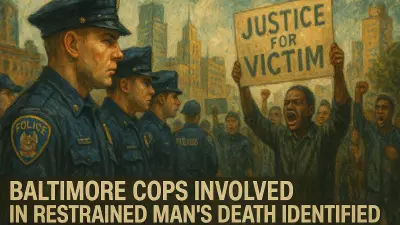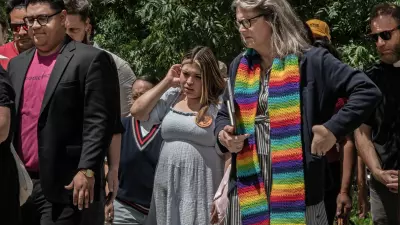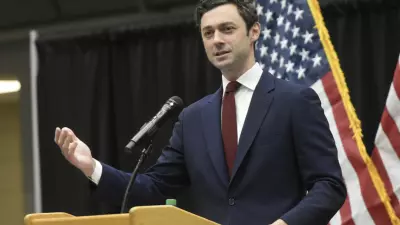The worst part of going to a concert or a ball game is often buying the tickets.

Georgia lawmakers are hoping to make the process a little less rage-inducing when they come back in January, but they’ve got a few competing ideas. Members of the House Regulated Industries Committee sounded off at a recent hearing.
Peachtree Corners Republican state Rep. Scott Hilton is pushing a bill that aims to stop venues from imposing resale limitations on tickets.
“Right now, the primary ticket sales throughout the United States are almost exclusively through one provider,” Hilton said. “Consumers are subject to terms and conditions, technologies and fee structures that attempt to limit the resale from a primary ticket holder to someone else. Due to these exclusive agreements, they’re trying to limit consumer behavior, consumer choice, and ultimately, competition.”
This bill aims to make it easier for a grandmother to donate Taylor Swift tickets to a church raffle or a son to save up money from mowing lawns and surprise his parents with Beyoncé tickets for their anniversary.
It could also help secondary ticket sellers who make money off of people buying up loads of tickets early and selling them at a markup to desperate fans, said Chatsworth Republican state Rep. Jason Ridley.
Ticket prices and availability came under nationwide scrutiny when many Swifties found themselves unable to score tickets for the mega-star’s Eras Tour without paying exorbitant second-hand prices.
“You take a Taylor Swift concert that they’re selling the tickets at Mercedes-Benz Stadium and the face value is $500,” Ridley said. “Somebody would have to pay $500 for it– that’s an individual, you or me. Then if I want to sell it, then I can on the secondary market, but that’s not what happened. That’s not what’s happening at all. That’s the reason everybody can’t find tickets is because there’s one group or several groups, that’s all part of one, that’s snatching them up and they’re saying they’re all gone.”
West Cobb Republican state Rep. Ginny Ehrhart said she’s all for the free market, but digital scalpers can use insider deals, bots and other technological tools to make sure sports and music fans don’t have a chance to buy a ticket at face value.
“These platforms have a distinct advantage when they can go in and do exactly what we were hearing today, which is buy up thousands of – if Rep. (Shelly) Hutchinson (Snellville Democrat) wants to go and buy her ticket and she’s got her finger on the button to purchase it when they go on sale at 7 a.m., she doesn’t have a chance because so many of these platforms have bought up large swaths of tickets. The individual consumer is at a distinct disadvantage there.”
“Just from my experience from economics, I mean, more regulation doesn’t make things cheaper, so we’re trying to remove regulation, remove friction, allow for more, greater transferability, (which) typically results in lower prices,” Hilton said.
“This case may be the exception,” said Ehrhart, a conservative radio host.
Ridley compared the situation to reports of toilet paper hoarding at the start of the COVID-19 pandemic.
“I think we’ve seen the consumers are not in the best interest whenever you have a free market on anything,” he said. “Toilet paper, during the pandemic. We had stores that had to put a limit on how much you could buy because people were buying it up to sell it to take advantage of people.”
“You keep saying that on an open market the more people we have the more it helps the consumer, but it doesn’t whenever you go,” he added. “One person that’s buying a majority of the tickets driving the price up is called shorting the market.”
Greg Green of the Masquerade music venue in Atlanta said he supports a way for people to resell tickets for face value or a small markup in cases where the original buyer can’t make the show, but resellers are a curse on his business. He called on lawmakers to protect against speculative ticketing
“We put a show on sale this past Friday. It was announced to the public the preceding Monday, but by Tuesday, three days before it went on sale, there were hundreds of seats for sale across various secondary platforms,” he said. “These sellers didn’t have any tickets. They were just representing as such.”
“Customers call us and they write, ‘why are the tickets that you advertise for $35, why are you selling them for $250 or $350?’ They don’t understand that it’s not us,” he said. “They don’t make the distinction.”
Sean Auyash, representing ticket reseller StubHub, spoke in favor of the proposed law.
“This bill does one thing,” he said. “It allows consumers who want to purchase a ticket in the state of Georgia to shop for the ticket that suits their needs best. At the same point, if they want to sell that ticket after they buy it, they can do so on the platform of their choice because they like the way the colors look or because the fees are lower on that website.”
Auyash also pushed back against suggestions that his company uses bots or buys up big buckets of tickets.
“We revolutionized the sale of tickets and brought that secondary resale out of the back alleys and brought it online. What we do is we allow buyers and sellers to connect. We do not buy tickets. We do not sell tickets on our own. We do not set the price for those tickets that some of the people who choose to use our platform to interact. And we provide customer service in that transaction.”
Committee Chairman Alan Powell, a Hartwell Republican, said the committee will meet again, perhaps during the General Assembly’s special redistricting session set to begin Nov. 29. Lawmakers can meet and discuss anything they want, but they will likely not be able to vote on anything except new electoral maps until next year.
Powell expressed optimism about coming to an agreement, but he said he is not sure what the state can do on its own.
“As y’all can see, it’s pretty well divided right now,” he said. “And when I talk about division, it doesn’t necessarily mean that something can’t be hammered out for the benefit of the consumers of Georgia. I don’t know what we can do, quite honestly, except on the local level. Because so much of this industry is being handled from out of state that we can’t reach. That it would take federal law, quite honestly, to deal with a lot of this.”
Ross Williams, before joining the Georgia Recorder, covered local and state government for the Marietta Daily Journal. His work earned recognition from the Georgia Associated Press Media Editors and the Georgia Press Association, including beat reporting, business writing and non-deadline reporting.
The Georgia Recorder is an independent, nonprofit news organization that is focused on connecting public policies to stories of the people and communities affected by them. We bring a fresh perspective to coverage of the state’s biggest issues from our office a few blocks from Georgia’s Gold Dome. Our perch might be near the Capitol in downtown Atlanta, but the communities we care about are found in all corners of Georgia, from the mountains of Blue Ridge to the flatlands of Bainbridge.







